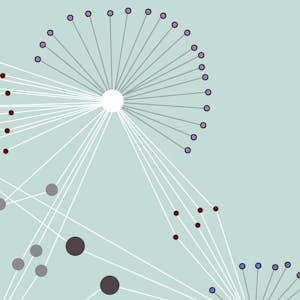Introduction to Statistics & Data Analysis in Public Health
About this Course
Welcome to Introduction to Statistics & Data Analysis in Public Health! This course will teach you the core building blocks of statistical analysis - types of variables, common distributions, hypothesis testing - but, more than that, it will enable you to take a data set you\'ve never seen before, describe its keys features, get to know its strengths and quirks, run some vital basic analyses and then formulate and test hypotheses based on means and proportions. You\'ll then have a solid grounding to move on to more sophisticated analysis and take the other courses in the series. You\'ll learn the popular, flexible and completely free software R, used by statistics and machine learning practitioners everywhere. It\'s hands-on, so you\'ll first learn about how to phrase a testable hypothesis via examples of medical research as reported by the media. Then you\'ll work through a data set on fruit and vegetable eating habits: data that are realistically messy, because that\'s what public health data sets are like in reality. There will be mini-quizzes with feedback along the way to check your understanding. The course will sharpen your ability to think critically and not take things for granted: in this age of uncontrolled algorithms and fake news, these skills are more important than ever. Prerequisites Some formulae are given to aid understanding, but this is not one of those courses where you need a mathematics degree to follow it. You will need only basic numeracy (for example, we will not use calculus) and familiarity with graphical and tabular ways of presenting results. No knowledge of R or programming is assumed.Created by: Imperial College London

Related Online Courses
This ITIL V4 Specialization provides an in-depth understanding of IT Service Management best practices, aligning IT services with business needs. Through a series of expertly designed courses, you... more
The Data Mining Specialization teaches data mining techniques for both structured data which conform to a clearly defined schema, and unstructured data which exist in the form of natural language... more
Students want to be successful when they embark on a learning journey. That success is dependent on a constellation of factors: 1) they need to be able to process the material that is presented in... more
Older adults are more likely to consume more prescription and non-prescription medications, and this can place them at high risk for unintended harmful effects. An important component of the care... more
This course is designed to empower individuals preparing for computer science job interviews, with essential strategies to confidently navigate the computer science interview process. It will... more








